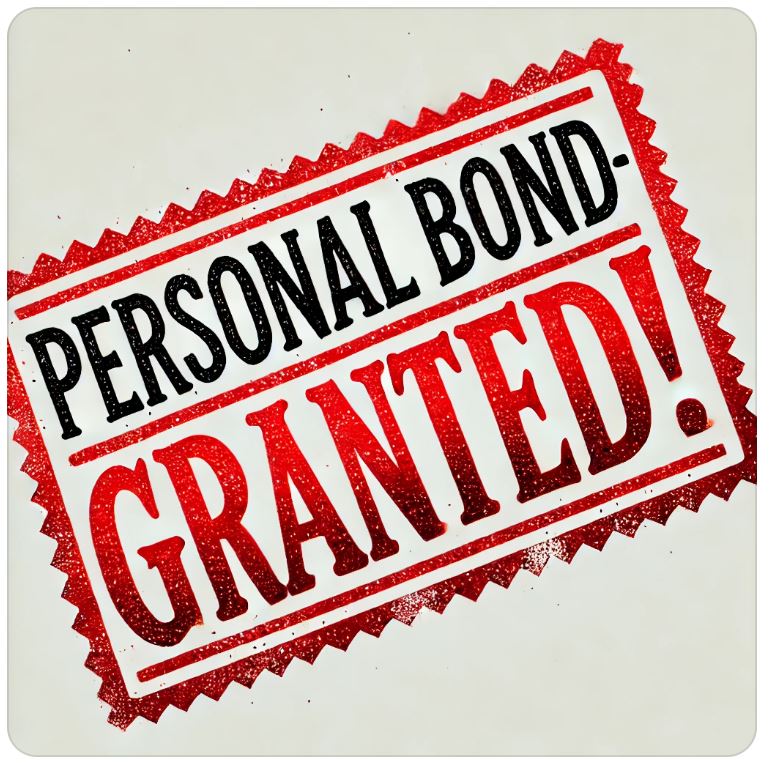A lawyer can file a motion to reduce an excessive bond.
Judges sometimes set high cash bonds when a defendant is unrepresented or represented by ineffective counsel at arraignment. An experienced lawyer can step in and file a motion requesting a reduction in the bond.

How to get bond or bail reduced?
Only a court order can modify the bond once a judge or magistrate has entered an order for bond or bail at arraignment. Bond, also called bail, is the amount of money a court requires to secure the defendant’s release from custody during a criminal prosecution. Generally, the defendant can request a lower bond and release from jail by motion. A motion is a formal request directed to the judge requesting an order for one thing or another. To get the bond amount reduced, the defendant would file a Motion to Reduce Bond (or a Motion to Reduce Bail). Although seeking a bond reduction might be less challenging with a defendant who self-surrenders, it is also possible if the police arrested a defendant on a warrant.
A motion can be oral or in writing. Although seeking a bond modification without a lawyer is possible, most courts require a written motion that complies with the Michigan Court Rules. A written motion must set forth the essential facts for the judge to consider when deciding the motion. The defense lawyer must also include case law, statutes, or constitutional law supporting the motion. The prosecutor or Assistant United States Attorney is entitled to 7 days’ notice and the opportunity to object in a written document called a Response Brief. Finally, the court schedules the motion for a hearing. At the bond hearing, the defense and the prosecution can argue their positions and answer the judge’s questions. After a hearing, the judge decides whether to reduce or modify the bond or bail.
An oral motion is typically less formal than a written motion. The prosecution will appear before the judge to verbally express objections to the defense’s Motion for Bond Reduction.
Judges’ preferences for arguing bond motions vary widely from court to court. A lawyer with extensive criminal defense experience will know each court’s best practices.
An Alternative to a Motion to Reduce Bail or Bond
In some courts, the judge may agree to a bond reduction if the defense and the prosecution agree. An agreement between lawyers is called a “stipulation.” A lawyer presents a deal for a bail reduction with a stipulated order spelling out the agreed-upon bond. A judge may accept the stipulation and sign the order or require the prosecution and defense lawyer to appear and explain the reasons for modifying the bond.
Before a prosecutor agrees to a reduced bond, they will want assurances that the defendant will not commit new crimes and return to court for future hearings. If a lawyer is known and respected, the prosecution may trust that lawyer’s representations and give the defendant the benefit of the doubt. In other cases, the defense lawyer may have to provide proof or evidence that shows why the defendant should be released, like proof of a medical condition, a job, custody of young children, or some other compelling reason. A seasoned attorney will know the best arguments to persuade a prosecutor to agree to a lower bond. Nevertheless, a judge can grant a Motion to Reduce Bond over the prosecutor’s objection.

Mandatory Bond Reduction
A defendant must be released on personal bond if they’ve been in custody for greater than six (6) months on a felony charge or 28 days on a misdemeanor, so long as the delays were not agreed to, attributable to, or the fault of the defense.
Types of Bond in Felony and Misdemeanor Cases
The lowest type of bond is called a “personal bond.” A personal bond is little more than a written promise to appear. There is always a cash amount associated with the personal bond, like $5,000, but paying that amount is not required unless the defendant violates the bond or fails to return to court for a scheduled hearing.
A “surety bond” is one that a licensed bondsman can post. In these cases, the bondsman charges a fee and then promises to pay the court the bond amount if the defendant absconds or doesn’t come to court. If this should happen, the bondsman or bond company that posted the surety bond will attempt to find the defendant, take them into custody, and forcibly turn that person over to the police or sheriff.
A “Cash Only” bond is typically reserved for severe drug cases, violent offenses, or when a defendant might be dangerous to the public or a flight risk.
“When can a lawyer file a Motion for Reduction in Bond?”
A lawyer can file a Motion to Reduce Bond anytime. A defendant can file a Motion to Reduce Bond in a felony and a misdemeanor case. The filing process can vary drastically from court to court, but an astute and experienced defense lawyer will find a way to file the motion and give the client the best chance of winning.
Bond Reductions in Federal Court
In federal court, the process is more complicated than the state process. When a judge denies bond to a federal defendant, a federal defense lawyer must file a Motion to Revoke Detention Order (similar to a Motion to Reduce Bond). Federal judges can be tough on bond motions, and the U.S. Attorney’s office routinely objects to any request for the defendant’s release. The Federal Defense Team with LEWIS & DICKSTEIN, P.L.L.C. has successfully got bond reductions in many cases, even when opposed by the United States Attorney’s Office.

Defense Attorneys for Getting Bond Reduced
If you have an arrest warrant or have a loved one who cannot post bond or bail, call LEWIS & DICKSTEIN, P.L.L.C. for a Free Consultation regarding a Motion to Reduce Bond. Besides providing the highest possible caliber of legal representation on all felony and misdemeanor charges, we have extensive experience successfully seeking bail reductions and filing Motions to Reduce Bond. Defendants who remain free on bond have better odds of getting charges dismissed, getting acquitted at trial, and/or achieving a more lenient sentence. Do not take chances with the lowest bidder when our attorneys can and will do whatever it takes to help.
Call us today at (248) 263-6800 for a free consultation or complete an online Request for Assistance Form. We will contact you promptly and find a way to help you.
We will find a way to help you.
We Are Not Afraid to Win!















